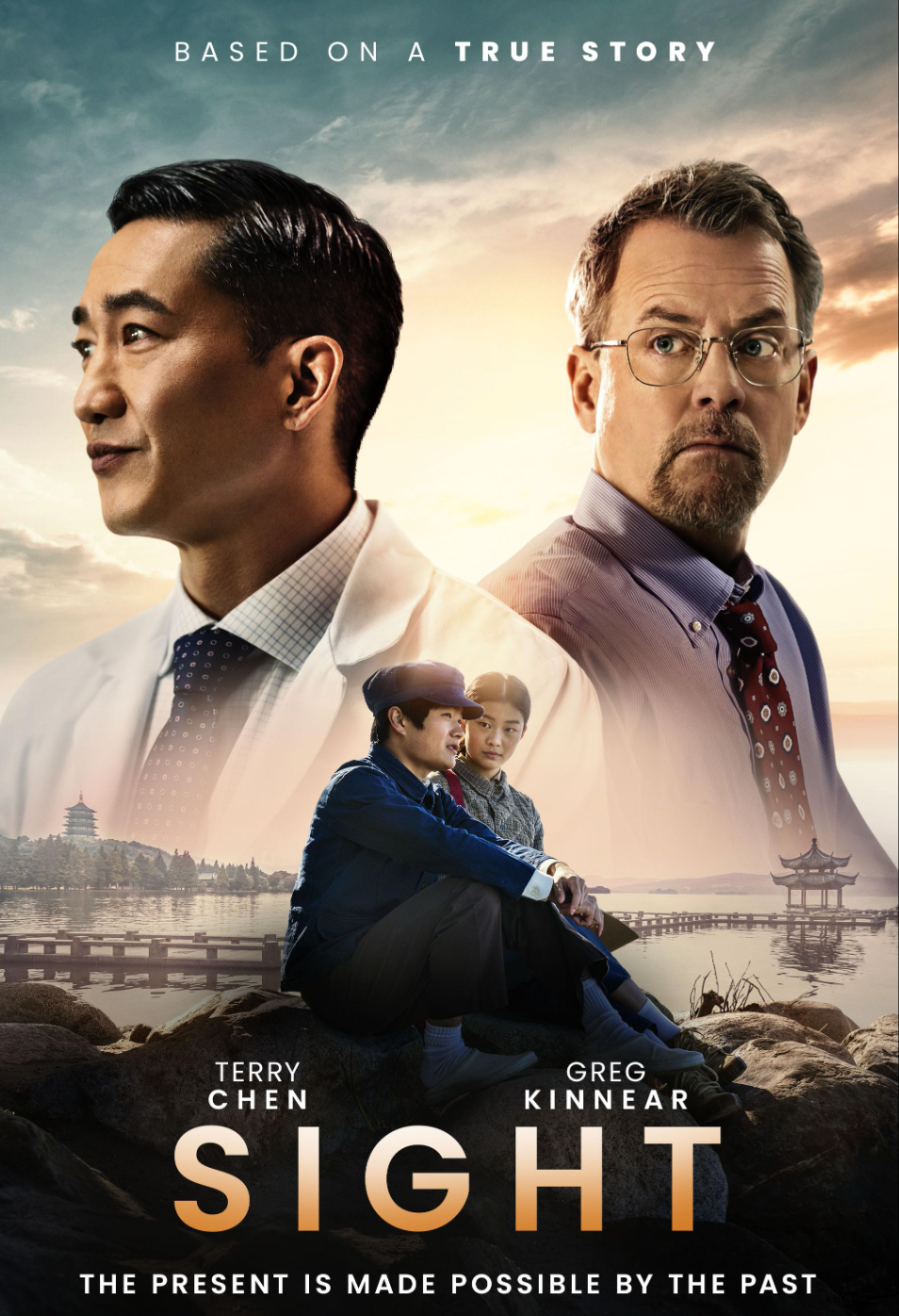Seeing Beyond Our Pain: Exclusive Review of Sight, the Movie

No matter how much education Ming Wang got—including an MD from Harvard and a PhD from MIT—he could not understand what life was about. No matter how successful he was as an eye surgeon in helping others regain their sight, he couldn’t see the purpose of his own life. No matter how far he lifted his own family out of poverty, he couldn’t see the value in his work.
Until he saw the faith of a blind orphan girl named Kejal. He realized that she could see things that he still couldn’t see.
That’s the inspiring story behind Sight, a movie to be released by Briarcliff Entertainment on October 27, starring Greg Kinnear, Terry Chen, and Fionnula Flanagan. An advanced screening was shown Sunday night at West University Baptist Church, followed by sharing from both Dr. Wang and his mentor, Rice University professor James Tour.
Based on Wang’s autobiography From Darkness to Sight, the movie—about forty to fifty percent Mandarin with English subtitles—moves smoothly back and forth between Wang’s life growing up in China and his professional life in the United States.
During Mao Zedong’s Cultural Revolution, Red Guards shut down Wang’s school and destroy the hospital where both his parents work.
When the uprising is over, Wang studies for the college entrance exam. Too poor to make copies of the practice questions, his parents hand-copy notes on anything they can find and drill him 20 hours a day. That instills a discipline and drive that will guide him throughout his life.
He will need it when he later applies for medical school. When he asks the admissions officer at John Hopkins how to apply, the officer asks him if he is Chinese. When he says yes, the officer sets his resume aside and tells him not to bother, saying that the Medical College Admissions Test is very difficult, even for native English speakers.
After the movie, Wang shared that his first real crisis of faith came in graduate school as he studied the eye. He had always been an atheist and considered Charles Darwin’s Origin of Species to be his “Bible,” yet he found himself perplexed by what Darwin himself admitted to be one of the greatest challenges to evolutionary theory.
As Darwin had put it, “To suppose that the eye with all its inimitable contrivances for adjusting the focus to different distances, for admitting different amounts of light, and for the correction of spherical and chromatic aberration, could have been formed by natural selection, seems, I freely confess, absurd in the highest degree.”[i]
Wang realized that the absurdity of such a scenario had only increased over the past 150 years as scientists learned more about the complexity of the eye. He kept asking one of his professors how to explain it. Finally, the professor took him to lunch and helped him to consider that just as an automobile is designed by engineers, so also the eye might have been designed by an intelligent mind.
“He opened a window into my life,” Wang said. From then on, he believed in a Creator. But he continued to struggle to find meaning. “I realized that we as human beings have jealousy, laziness, and I like to blame others for my problems.”
He finally found resolution to these struggles in Christianity. He shared how, with the help of mentors like James Tour and other scientists, he has continued to grow in his faith: “The biggest difference to me between a Christian and a non-Christian is seeing more to this life than what we see with our eyes.”
That’s what Kejal, the blind orphan girl, helped him to understand. With moving drama, Sight shows us what Helen Keller meant when she said, "The only thing worse than having no sight is having no vision.”
Why did we include this in the Sharpener? On one hand, it’s not exactly a Sharpstown story. On the other hand, it is a southwest Houston story since the advance screening was in West University Place. Normally, that wouldn’t be good enough, but since Sharpstown includes Chinatown, a movie that’s forty to fifty percent in Mandarin should be especially intriguing for local audiences. Also, this story is exclusive. To our knowledge, this is the first review of Sight to be published on the entire internet.
Author
Matt Connally is a freelance writer who grew up in Houston. He’s happily married, and has two sons, a dog, and a cat.
[i] Charles Darwin, On the Origin of Species by Means of Natural Selection, 1859 (Bantam Classic edition, 1999), pp. 155.



Comments ()